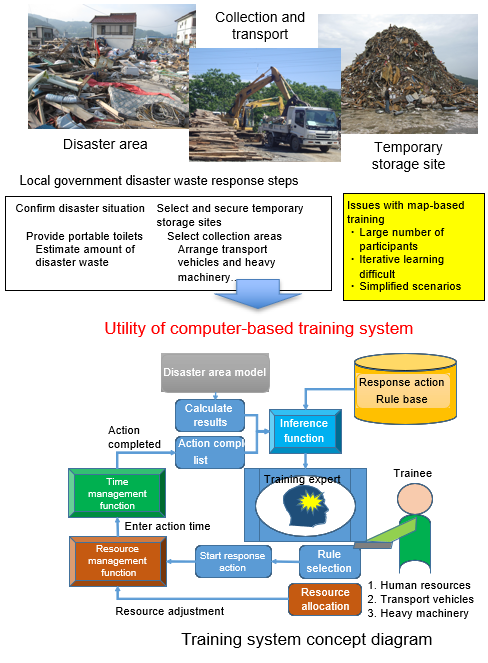Example
Aiming for swift disposal of disaster waste: Developing a disaster waste response training system for local governments
Objectives and Overview
Disasters including heavy rain, typhoons, flooding, and landslides due to climate instability and major earthquakes have occurred frequently in recent years. A large amount of disaster waste is produced whenever a disaster occurs, and when immediate disposal measures are delayed, it may cause major delays in later urban restoration and reconstruction work. Because of this, swift and early action by local governments is needed. Local governments with advanced policies gather trainees and hold map-based drills acting according to a scenario to help government employees understand and confirm their division of responsibility and response actions in case of an emergency. However, map-based drills have a variety of issues, including that all participants must be present simultaneously, they do not allow iterative learning, and they are not suitable for complex scenarios. In this research project, we are creating a rule base by aggregating past disaster waste processing experiences and using it to develop an expert system in which a program trains test subjects. The expert system takes on all roles except the test subject, allowing individual and remote collaborative training, with the additional benefit of broader training content.
Future plan
We are examining implementing a training system with Kochi City employees to prepare for the Nankai Trough Earthquake.

Representative
